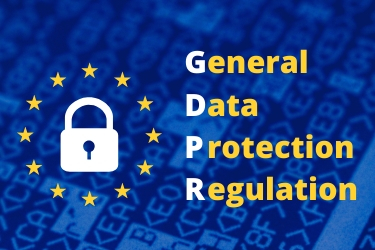
The General Data Protection Regulation, or GDPR, which went into effect on May 25, 2018, consists of seven basic data protection principles that embody the spirit of any useful data protection regime. Applicable to all companies that collect and process the data of European Union citizens, it revolves around the lawful processing of such individuals’ personal data. The processes in question include the collecting, structuring, organizing, storage, alteration, communication, consultation, combination, destruction, or erasure of such data.
The GDPR represents the most significant change in data protection law since 1995, when the Data Protection Act, or DPD, was enacted. Companies across the world scrambled upon learning about the upcoming new legislation because, although similar in many ways to the DPD, the GDPR of 2018 is more far-reaching and detailed. It also includes a new, seventh principle – the accountability standard – that applies to firms that operate not only within the EU but anywhere in the world.
If your company collects data about EU citizens, you must ensure that you comply with the GDPR. Otherwise, you face the risk of severe fines. The fines that may be imposed by the new law are significantly steeper than those of the DPD. For example, failure to keep data secure, as required by the GDPR, may result in fines of up to 2 percent of your firm’s annual global turnover or €10 million – whichever is higher.

Here’s a quick summary of the six principles that make up the core of the GDPR:

One of the most significant updates that came along with the enactment of the GDPR is the accountability principle. Under this principle, it is your responsibility to ensure that your organization complies with the GDPR – and you must be able to demonstrate compliance. If you, for example, rely on social media robots for data collection purposes, you may not be in accordance and may be breaking the accountability principle.
Examples of accountability measures that may be used to comply with this principle include:
If you are concerned about whether or not your small business complies with the seven GDPR principles, the time to act is now. Small business website design plays a crucial role in maintaining compliance, and E-Marketing Associates can assist you in this regard. Contact us today for more information.
The GDPR is the European Union’s data protection regulation effective 25 May 2018. Any company, anywhere, that collects, stores, or processes personal data of EU citizens must follow its rules, regardless of the organisation’s size or location.
They are lawfulness, fairness and transparency; purpose limitation; data minimisation; accuracy; storage limitation; integrity and confidentiality; and accountability. Together, they require firms to collect only necessary data, protect it properly, use it transparently, and prove ongoing compliance.
Non compliant organisations risk administrative fines up to €10 million or 2 percent of global annual turnover for certain infringements, whichever is higher. Serious breaches can lead to even larger fines, reputational harm, and possible suspension of data processing.
Accountability obliges businesses not just to follow GDPR rules but to prove it. Firms must document processing activities, appoint data protection officers when required, conduct impact assessments, record breaches, and maintain processor contracts, raising the bar above earlier, less strict laws.
Audit what personal data you collect, why it’s needed, and retention periods. Update clear privacy policies, delete unnecessary information, secure remaining data with measures like encryption, and assign responsibility—for example, appointing a data protection officer—to oversee continuing compliance.